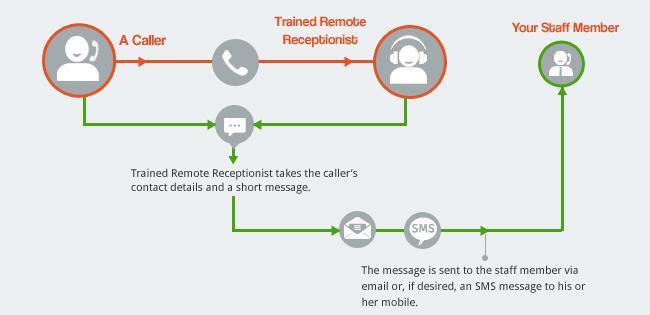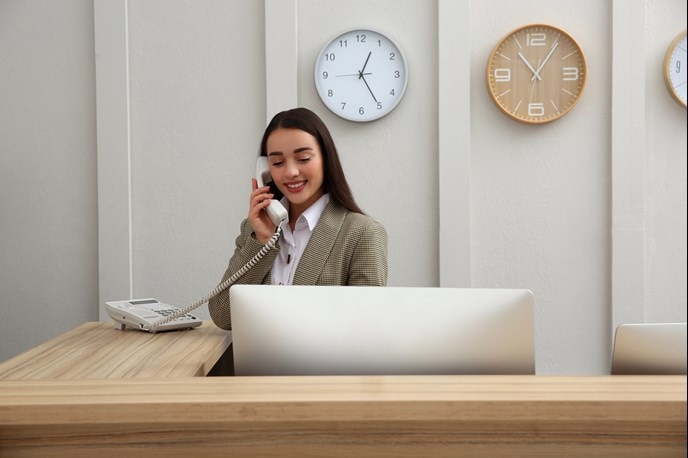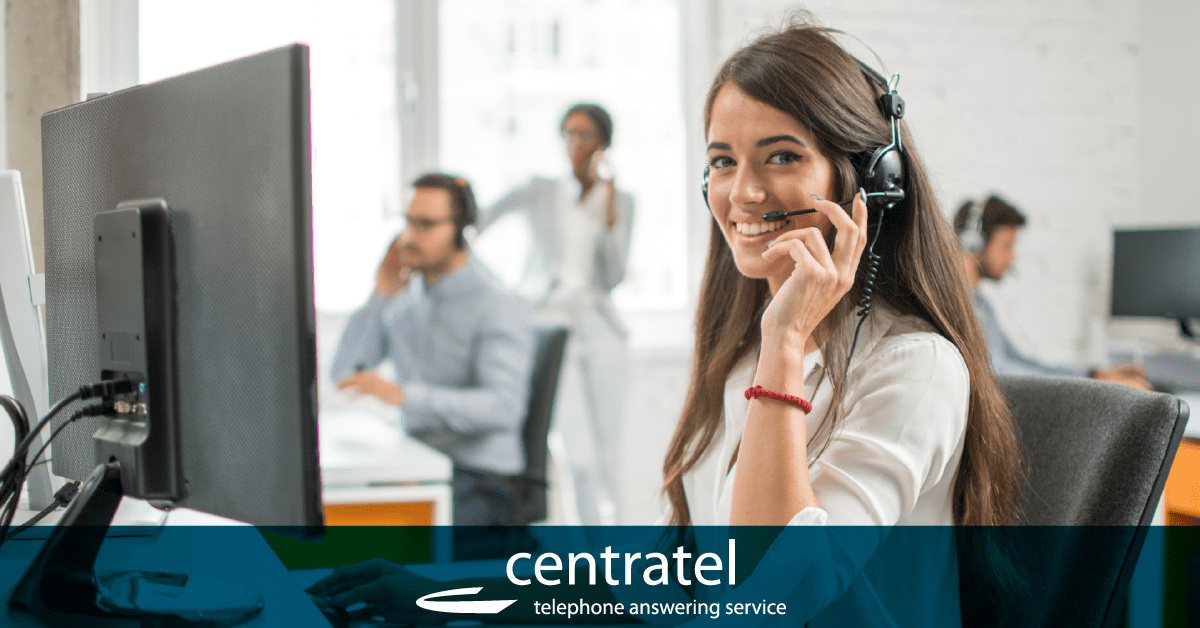All Categories
Featured
Table of Contents
- – What Is The Best 24/7 Phone Answering - Au-base...
- – What Is The Best Answering Adelaide - Phone An...
- – What Is The Best Discover How To Set Up A Call...
- – When Are Best 14 Benefits Of A Telephone Answ...
- – What Is The Best Virtual Receptionist Perth -...
- – What Is The Best Answering Service Faqs - Qu...
What Is The Best 24/7 Phone Answering - Au-based Operators - Alltel Australia?
This device and its followers were designed by Sava Jacobson, an electrical engineer with a private consulting service. While early voice mail used magnetic tape innovation, many modern-day equipment utilizes solid state memory storage; some devices use a mix of both, with a solid-state circuit for the outbound message and a cassette for the inbound messages.
"toll conserving" below) (call answering services). This works if the owner is evaluating calls and does not wish to speak with all callers. In any case after going, the calling party should be informed about the call having been answered (most of the times this starts the charging), either by some remark of the operator, or by some welcoming message of the little, or addressed to non-human callers (e.
This holds particularly for the Little bits with digitally kept greeting messages or for earlier devices (before the increase of microcassettes) with a special unlimited loop tape, different from a second cassette, committed to recording. There have been answer-only gadgets with no recording abilities, where the welcoming message needed to inform callers of a state of present unattainability, or e (call answering services).
What Is The Best Answering Adelaide - Phone Answering Services To Buy Now

about schedule hours. In tape-recording Littles the greeting usually includes an invitation to leave a message "after the beep". A voice mail that utilizes a microcassette to tape-record messages On a dual-cassette answerphone, there is an outgoing cassette, which after the defined variety of rings plays a pre-recorded message to the caller.

Single-cassette answering machines consist of the outgoing message at the start of the tape and inbound messages on the staying space. They first play the statement, then fast-forward to the next readily available space for recording, then record the caller's message. If there are numerous previous messages, fast-forwarding through them can cause a considerable hold-up.
This beep is often described in the greeting message, asking for that the caller leave a message "after the beep". TADs with digital storage for the tape-recorded messages do disappoint this hold-up, obviously. A little bit might offer a push-button control center, whereby the answerphone owner can call the home number and, by entering a code on the remote telephone's keypad, can listen to tape-recorded messages, or erase them, even when away from house.
What Is The Best Discover How To Set Up A Call Answering Service With A 7- ... In The World

Thus the machine increases the number of rings after which it addresses the call (generally by 2, resulting in four rings), if no unread messages are presently saved, however responses after the set variety of rings (normally 2) if there are unread messages. This allows the owner to discover whether there are messages waiting; if there are none, the owner can hang up the phone on the, e.
Some devices also enable themselves to be from another location activated, if they have been changed off, by calling and letting the phone ring a certain a great deal of times (usually 10-15). Some company desert calls currently after a smaller variety of rings, making remote activation impossible. In the early days of TADs a special transmitter for DTMF tones (dual-tone multi-frequency signalling) was regionally required for push-button control, given that the formerly employed pulse dialling is not apt to communicate suitable signalling along an active connection, and the dual-tone multi-frequency signalling was implemented stepwise.
Any incoming call is not identifiable with respect to these homes in advance of going "off hook" by the terminal equipment. So after going off hook the calls need to be changed to appropriate devices and just the voice-type is immediately available to a human, however possibly, nevertheless must be routed to a TAD (e.
When Are Best 14 Benefits Of A Telephone Answering Service In 2023 Sales
What if I told you that you do not need to in fact pick up your gadget when responding to a consumer call? Somebody else will. So convenient, ideal? Answering telephone call does not need somebody to be on the other end of the line. Effective automated phone systems can do the technique simply as effectively as a live representative and sometimes even better.
An automated answering service or interactive voice response system is a phone system that interacts with callers without a live person on the line - professional phone answering service. When companies utilize this technology, clients can get the answer to a concern about your company simply by utilizing interactions set up on a pre-programmed call flow.
Although live operators upgrade the client service experience, lots of calls do not require human interaction. An easy documented message or guidelines on how a client can retrieve a piece of details normally resolves a caller's immediate need - virtual telephone answering. Automated answering services are a simple and efficient way to direct inbound calls to the best individual.
What Is The Best Virtual Receptionist Perth - Local Phone Answering Service To Buy Now
Notification that when you call a business, either for support or item query, the very first thing you will hear is a pre-recorded voice welcoming and a series of options like press 1 for customer service, press 2 for questions, and so on. The pre-recorded alternatives branch out to other choices depending upon the client's selection.
The phone tree system helps direct callers to the ideal individual or department utilizing the keypad on a cellphone. In some circumstances, callers can use their voices. It's worth keeping in mind that auto-attendant options aren't limited to the ten numbers on a phone's keypad. Once the caller has selected their very first option, you can develop a multi-level auto-attendant that utilizes sub-menus to direct the caller to the ideal type of help.
The caller does not have to interact with a person if the auto-attendant phone system can handle their concern. The automatic service can route callers to an employee if they reach a "dead end" and need support from a live representative. It is pricey to employ an operator or executive assistant.
What Is The Best Answering Service Faqs - Questions & Answers To Get Right Now
Automated answering services, on the other hand, are significantly less costly and supply substantial cost savings at approximately $200-$420/month. Even if you do not have dedicated personnel to manage call routing and management, an automated answering service enhances productivity by allowing your team to concentrate on their strengths so they can more efficiently invest their time on the phone.
A sales lead routed to client service is a lost shot. If a client who has product concerns reaches the incorrect department or gets incomplete responses from well-meaning employees who are less trained to manage a particular type of question, it can be a reason for aggravation and dissatisfaction. An automatic answering system can lessen the number of misrouted calls, therefore helping your workers make better use of their phone time while releasing up time in their calendar for other tasks.
With Automated Answering Systems, you can produce a tailored experience for both your staff and your callers. Make a recording of your primary greeting, and just update it regularly to show what is going on in your organization. You can produce as numerous departments or menu options as you desire.
Table of Contents
- – What Is The Best 24/7 Phone Answering - Au-base...
- – What Is The Best Answering Adelaide - Phone An...
- – What Is The Best Discover How To Set Up A Call...
- – When Are Best 14 Benefits Of A Telephone Answ...
- – What Is The Best Virtual Receptionist Perth -...
- – What Is The Best Answering Service Faqs - Qu...
Latest Posts
Effective Real Estate Answering Service
Expert Hospitality Answering Service ( Australia)
Secure Business Answering Service Near Me
More
Latest Posts
Effective Real Estate Answering Service
Expert Hospitality Answering Service ( Australia)
Secure Business Answering Service Near Me